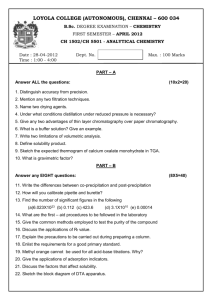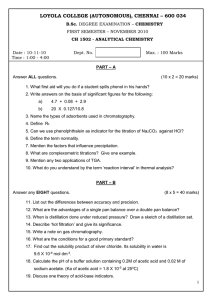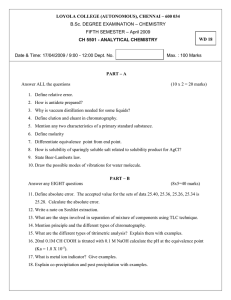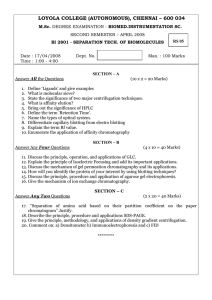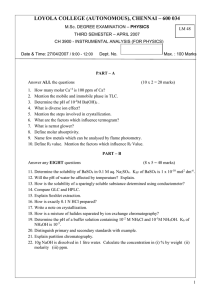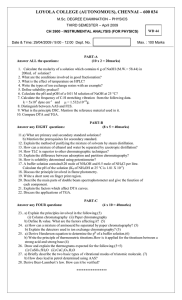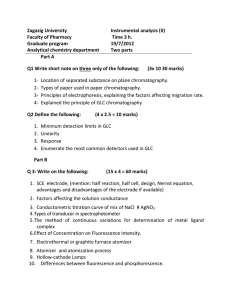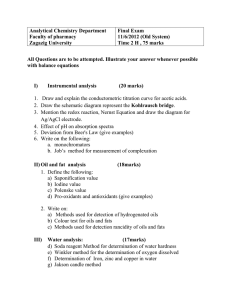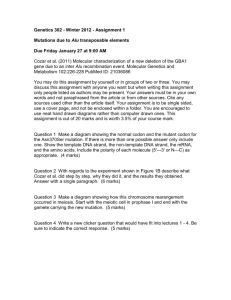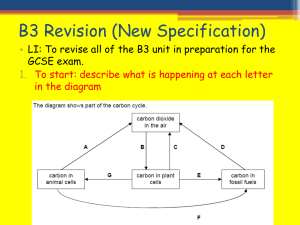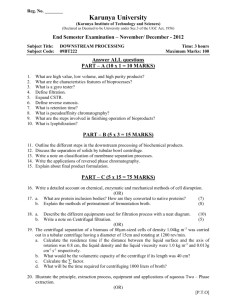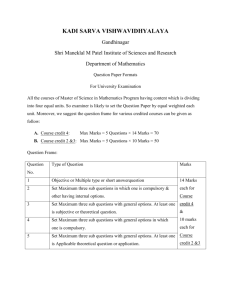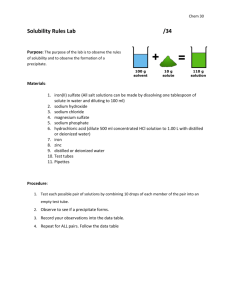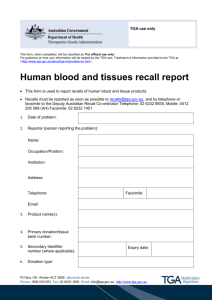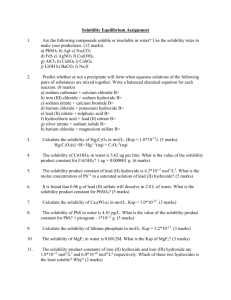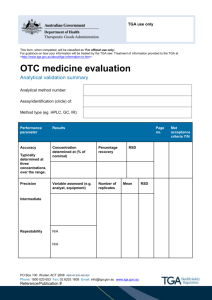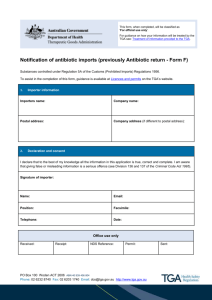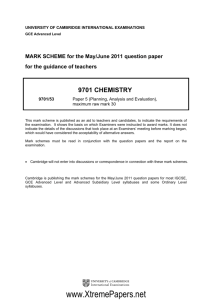CH 1505 1502 5501
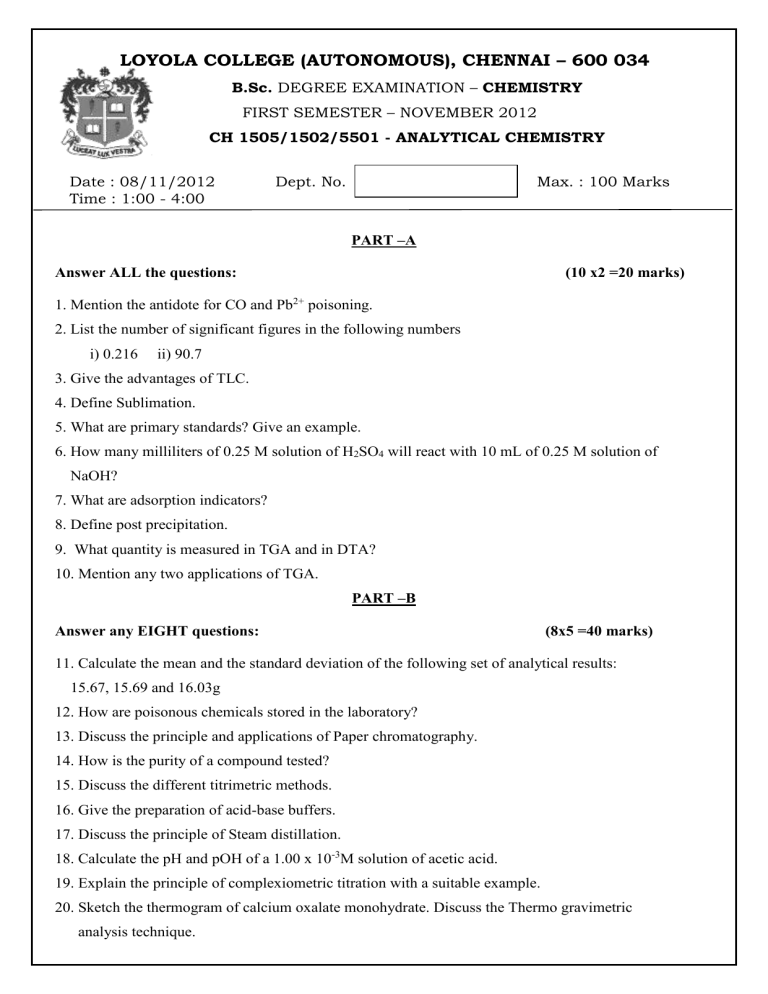
LOYOLA COLLEGE (AUTONOMOUS), CHENNAI – 600 034
B.Sc. DEGREE EXAMINATION – CHEMISTRY
FIRST SEMESTER – NOVEMBER 2012
CH 1505/1502/5501 - ANALYTICAL CHEMISTRY
Date : 08/11/2012
Time : 1:00 - 4:00
Dept. No. Max. : 100 Marks
PART –A
Answer ALL the questions:
1. Mention the antidote for CO and Pb 2+ poisoning.
(10 x2 =20 marks)
2. List the number of significant figures in the following numbers
i) 0.216 ii) 90.7
3. Give the advantages of TLC.
4. Define Sublimation.
5. What are primary standards? Give an example.
6. How many milliliters of 0.25 M solution of H
2
SO
4
will react with 10 mL of 0.25 M solution of
NaOH?
7. What are adsorption indicators?
8. Define post precipitation.
9. What quantity is measured in TGA and in DTA?
10. Mention any two applications of TGA.
PART –B
Answer any EIGHT questions: (8x5 =40 marks)
11. Calculate the mean and the standard deviation of the following set of analytical results:
15.67, 15.69 and 16.03g
12. How are poisonous chemicals stored in the laboratory?
13. Discuss the principle and applications of Paper chromatography.
14. How is the purity of a compound tested?
15. Discuss the different titrimetric methods.
16. Give the preparation of acid-base buffers.
17. Discuss the principle of Steam distillation.
18. Calculate the pH and pOH of a 1.00 x 10 -3 M solution of acetic acid.
19. Explain the principle of complexiometric titration with a suitable example.
20. Sketch the thermogram of calcium oxalate monohydrate. Discuss the Thermo gravimetric
analysis technique.
21. Calculate the molar solubility of PbSO
4
if the solubility product is 1.6 x 10
-8
.
22. What is von Weiman ratio? Define the terms in it.
PART -C
Answer any FOUR questions:
23.
Discuss the theory of acid- base indicators with suitable examples.
24. How is chloride determined by Volhard’s method?
(4x10 =40 marks)
25. What are absolute and relative errors? Give the methods of minimizing errors.
26. Explain the principle, technique and applications of ion-exchange chromatography.
27. Discuss the instrumentation of thermogravimetric analysis.
28. a) Give the properties and uses of drying agents.
b) What are metal ion indicators? Explain their characteristics.
$$$$$$$
